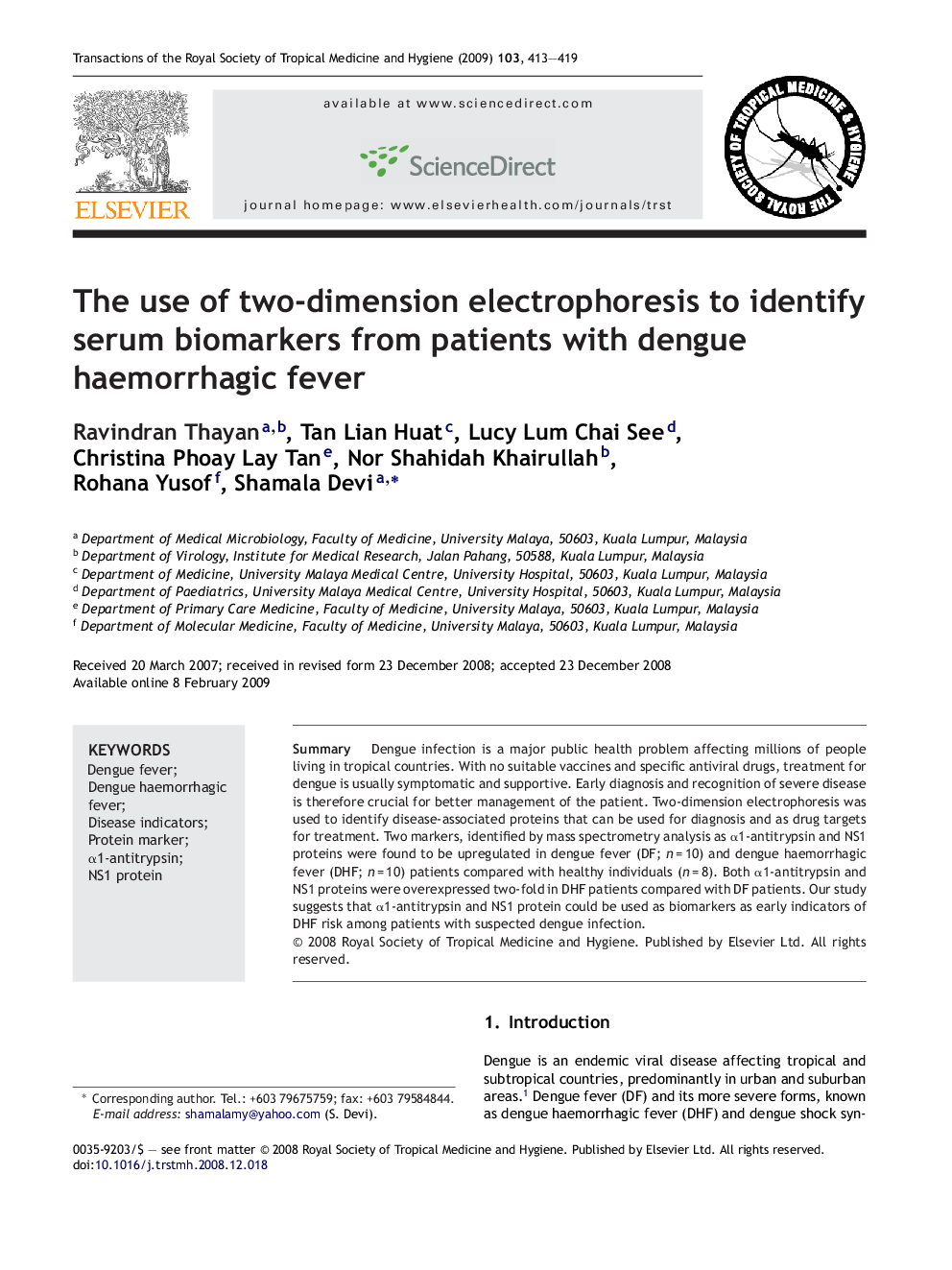| Article ID | Journal | Published Year | Pages | File Type |
|---|---|---|---|---|
| 3421152 | Transactions of the Royal Society of Tropical Medicine and Hygiene | 2009 | 7 Pages |
SummaryDengue infection is a major public health problem affecting millions of people living in tropical countries. With no suitable vaccines and specific antiviral drugs, treatment for dengue is usually symptomatic and supportive. Early diagnosis and recognition of severe disease is therefore crucial for better management of the patient. Two-dimension electrophoresis was used to identify disease-associated proteins that can be used for diagnosis and as drug targets for treatment. Two markers, identified by mass spectrometry analysis as α1-antitrypsin and NS1 proteins were found to be upregulated in dengue fever (DF; n = 10) and dengue haemorrhagic fever (DHF; n = 10) patients compared with healthy individuals (n = 8). Both α1-antitrypsin and NS1 proteins were overexpressed two-fold in DHF patients compared with DF patients. Our study suggests that α1-antitrypsin and NS1 protein could be used as biomarkers as early indicators of DHF risk among patients with suspected dengue infection.
